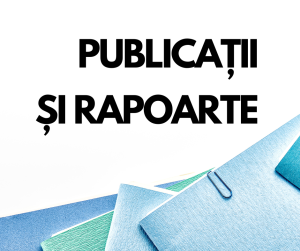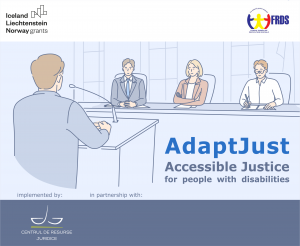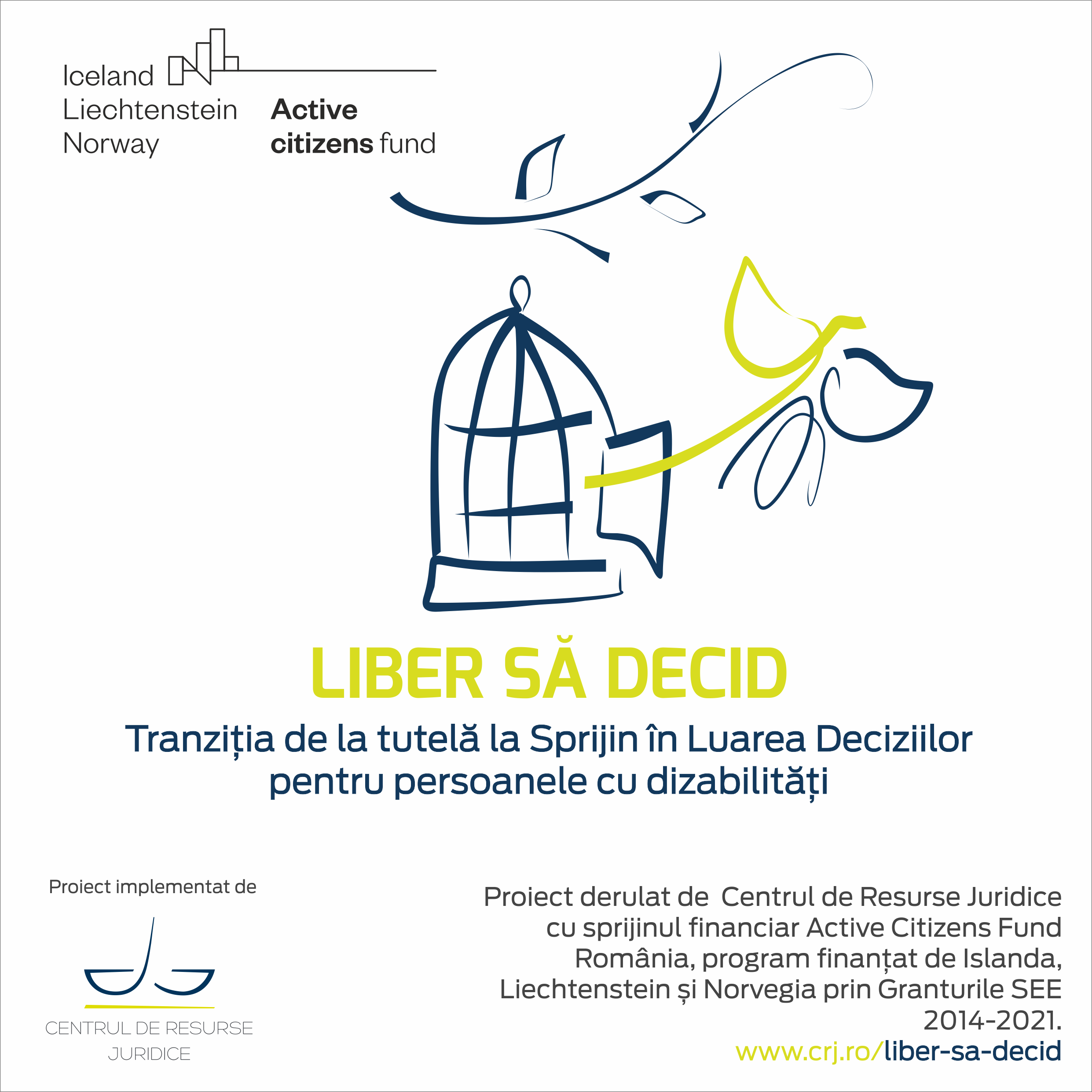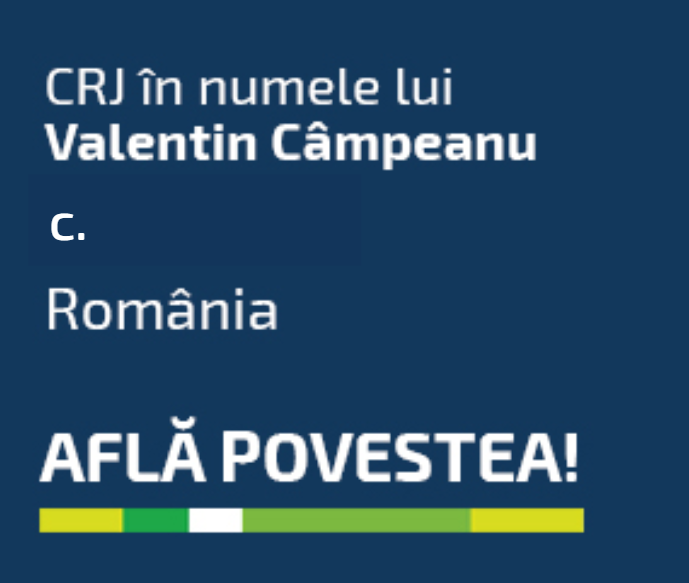
The third session of the course “The Right to Decide – Piloting Regional Initiatives” took placein Sibiu on October 26-28, 2022. The guest speaker was Professor Michael Bach from the Institute for Research and Development on Inclusion and Society (IRIS).
As in previous sessions, there was much discussion about decision support and support for people with disabilities to live in the community. The starting point of the discussions was that people with intellectual, psychosocial and neurological disabilities face legal, political and practical barriers in exercising their right to decide on an equal basis with others.
For three days, we were together with adults with disabilities, self-representatives, non-governmental organisations, representatives of DGASPCs and Guardianship Authorities in the country.
Lack of social services in the community – one of the main reasons for the placing people with disabilities under a court’s jurisdiction.
The first day was devoted to discussions on the changes that Law 140/2022 brings to the lives of adults with disabilities. Romania’s ratification of the Convention on the Rights of Persons with Disabilities and the adoption of the amendments to the Civil Code by Law 140 establish Romania’s obligation to ensure respect, dignity and equal rights for persons with disabilities, including the exercise of their right to decide, as well as the necessary support to this end.
The course participants were made aware of some of the major changes that Law 140/2022 brings to the lives of people with disabilities:
- Following ex officio re-evaluations or on request of the prohibition orders, judges will be obliged to give reasons, based on the reports, for not choosing a more lenient protective measure.
- The person with a disability has the right to request procedural accommodations (e.g. presence of a support person in the courtroom, interpreter in simplified language, etc.).
“Although the law has been in force for three months now, we have not received any information about the concrete changes it brings or about the methodology of implementation.”
Georgiana Pascu, programme manager at the Centre for Legal Resources , talked about the new legal framework and the more than 100,000 reviews of court decisions on prohibition orders that will have to be done in the next 3 years. It was pointed out that the lack of social services in the community was one of the main reasons that led to the mass banning of people with disabilities.
Representatives of the country’s DGASPC (General Directorate for Social Assistance and Child Protection) and Guardianship Authorities also spoke about the fact that, although the law has been in force for three months, they have not received any official information from the competent state authorities about the new legislative changes or the related methodology.
The right method of communication – the basis of decision support for people with disabilities.
The need to train staff working in residential centres in the use of alternative methods of communication with people with intellectual and/or non-verbal disabilities was one of the topics discussed at length, as a basic element in the decision support offered to people. It was stressed that it is absolutely necessary to learn to listen to the person, to find the right method of communication with each person, in order to give them correct information about their rights and the alternatives available to them.
From the very beginning of the session, people with disabilities present in the room and who had a long institutional background raised the issue of lack of communication in residential centres. “When I was at the home, nobody spoke to me. If I went to ask something, I was not answered, I was not taken into account. All day I would lie in bed, steamming. Thanks to the foundation, I learned to communicate, live and support myself; I have a job. I never thought I’d end up like this!” A., 45.
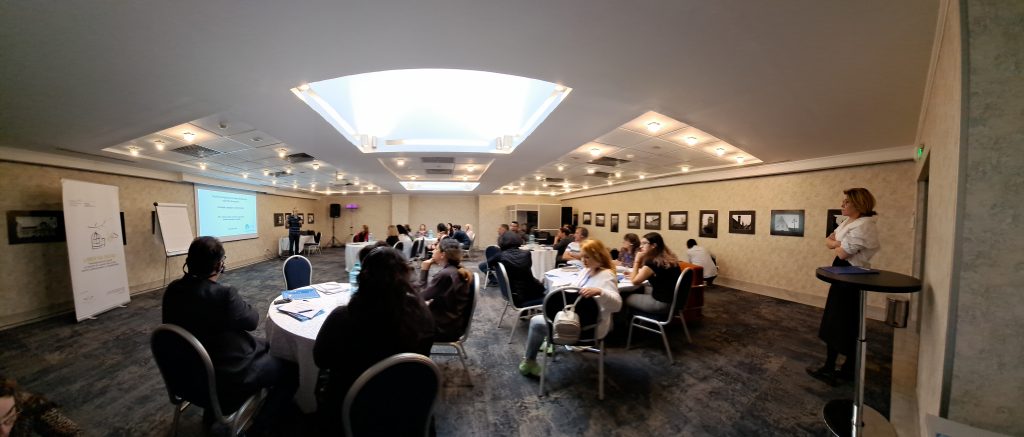
In the absence of verbal language, behaviour can be an indicator of intent.
As working tools offered to the participants, Prof. M Bach highlighted a few aspects:
- lack of knowledge of certain concepts should not be a basis for classifying an individual as lacking the capacity to exercise
- cognitive support of others is only a support tool, not a replacement for the individual’s ability to exercise, a replacement for the individual’s personal decisions and preferences
- the fact that I cannot understand what a person wants to express is not the fault of that person, but of my ability to understand
- the person’s preferences can be interpreted, they do not have to be expressed verbally/written to be valid;
- the desire to act can be expressed in a wide variety of ways to demonstrate intent, even through inaction
- Intention can even be deduced from gestures. However, in most cases, the behaviour of the person with a disability is seen as an indicator of diagnosis rather than intention.
The right to make decisions is a fundamental right, as is the right to have a home, the right to food, without further distinctions.

During the three days of the course, the issue of interior design and physical comfort of people in residential homes was raised several times as an indicator of quality of life. Both Prof. M. Bach and Georgiana Pascu pointed out that no matter how well equipped a living space may be, if dozens of people live in it, without the right to decide on things that concern them directly, such as what they want to eat or when they want to go out the doors, it is still a form of institutionalisation and violates the principles of the UN Convention on the Rights of Persons with Disabilities.
“Decision-making support and community life support must go hand in hand. We can’t expect things like personal assistance, medical help, assistive devices, financial independence, community relationships to work perfectly in order to take into account a person’s right to decide for themselves. On the contrary. Assistance in communication, support in building a support network, support in interpreting needs and intentions, all these are equally fundamental rights and contribute to achieving the highest possible quality of life for everyone, including people with intellectual and psychosocial disabilities” – Prof. M. Bach (IRIS).
Collaboration – the key word.
The third session of the “Right to Decide – Piloting Regional Initiatives” course concluded with the partners setting the goal for the coming period: to develop the capacity of community NGOs, social service providers, health services and hospitals, public and guardianship authorities, the private sector (e.g. banks, service providers), the judiciary and society in general to recognise, respect and support the right of people with disabilities to enjoy and exercise their equal right to decide.

The collaboration between Centre for Legal Resources and Professor Michael Bach on this topic started as early as 2019, since his participation in the international conference- Public Policy for Human Rights, organized by the CLR .
The course “The right to decide – piloting regional initiatives” is organised by the Centre for Legal Resources (CLR) in the framework of the project “Free to decide. Transition from Guardianship to Decision Support for People with Disabilities”, with the financial support of Active Citizens Fund Romania, a programme funded by Iceland, Liechtenstein and Norway through EEA Grants 2014-2021.

